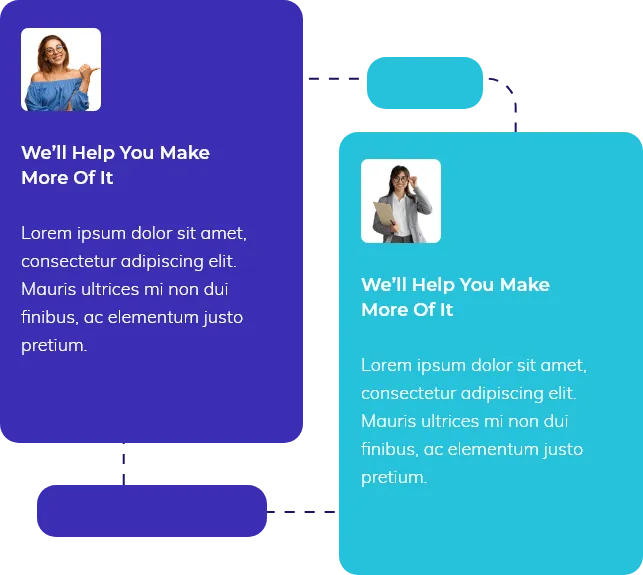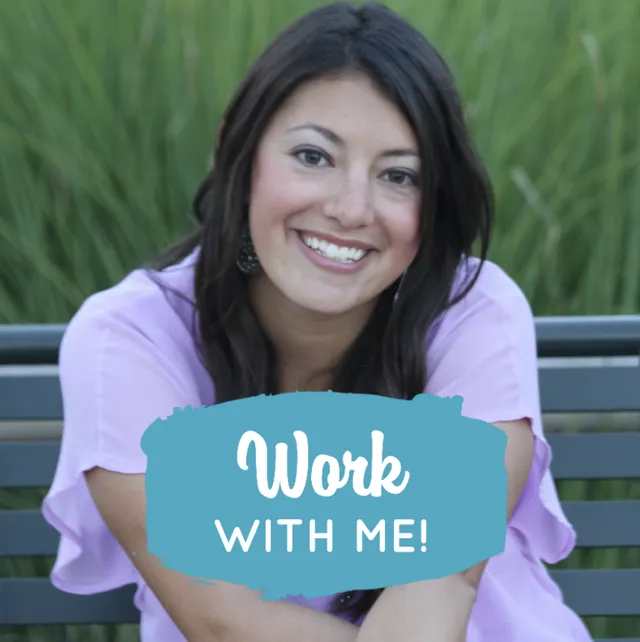


We’ll Help You Make More Of It
Committed To Helping Our Customers Succeed
Lorem ipsum dolor sit amet, consectetur adipiscing elit. Mauris ultrices mi non dui finibus, ac elementum justo pretium. Pellentesque porta elementum efficitur. Fusce nisl justo, eleifend sit amet dui in, porta ornare arcu.
Mauris ultrices mi non dui finibus, ac elementum justo pretium. Pellentesque porta elementum efficitur.
Fusce nisl justo, eleifend sit amet dui in, porta ornare arcu. Praesent eu tortor at
Trusted By Our Clients
★★★★★

Want a head start (or catch up)?
Feeling lost in the college application maze? Don't fret! Grab The College Timeline video and PDF to keep you on the path to success!
Check Out the Latest Advice

Mastering College Admissions Essays: What Not to Do

Are you ready to elevate your essay game? Today, we're diving deep into the college admissions essay- that daunting task everyone has to conquer. No worries, though! I’m here to walk you through the four biggest mistakes most applicants make, and how to avoid them.
College application essays aren’t research papers- they’re marketing material. This is the easiest way to describe how your college essays should read.
Before we dive into the details, let me introduce you to an essay that I'll be referencing throughout this article. (You can find the full essay below.) I’m excited to share this one with you for a few key reasons:
1. Let’s talk about the big question: How do you stand out if you don’t feel “special”? Students from traditional backgrounds (think: white, middle-upper income households, little to no adversity, etc.) often struggle the most with this. This essay was written by a student from exactly this kind of background, yet her genuine passion for her field of study shone through, making her unique in a sea of applicants. It’s proof that what makes you special isn’t always about your background—it’s about your authenticity and showcasing your value.
2. Here’s a myth buster: You don’t need to be the world’s greatest writer to create a compelling essay. I’ve seen beautifully written essays that are forgettable, while others that are less polished but packed with substance that leave a lasting impression. This essay isn’t about being perfect—it’s about having something real and meaningful to say.
3. Honesty moment: This essay started out pretty dull. It felt more like a newspaper article than an essay meant to sell a student’s story. But with some tweaking and creativity, it transformed into something memorable and engaging. The lesson? It’s not just about what you write, but how you write it that makes the difference.
As you read through, think about how you can apply these takeaways to your own writing.
Mistake 1: The Dreaded Cliché
First up, let's talk about clichés. You know the stories I'm talking about – the time you went to Mexico and built houses, or that sports injury that changed your life. Yes, these experiences are significant to you, but trust me, admissions officers have read about them a bajillion times. And while your story might be new to you and great experiences for growth, in the grand scheme of things, they’re incredibly commonplace.
But here’s the magic word: Execution. Think about how you can spin that ‘common’ event into something that truly represents you. Take our star example, the Ted Bundy essay. On the surface, it might seem like a dark and unusual choice for a college essay. However, the student executed it so well that it didn't just talk about Ted Bundy; it communicated her passion for forensics and showcased a deep academic interest. Surprisingly, it wasn’t even the best-written essay in terms of creativity or word choice, but it was memorable – and that’s what mattered.
Mistake 2: Staying Impersonal
Admissions essays are about YOU. This isn't the time for a research paper or an impersonal narrative about someone you admire. It's your moment to make the admissions officers root for you, to see the real, human side of you.
A common pitfall I see is when students write too much about other people – grandparents, coaches, you name it. While it’s great to honor those who've impacted you, don't forget to weave in your own personal anecdotes and reflections.
For instance, our Ted Bundy essayist didn't delve into Bundy’s crimes. Instead, she touched upon how a kitchen table conversation between her mom and aunt sparked her interest in forensics. This connection, this personal hook, transformed her essay from mundane to magnetic. By showcasing her passion and the efforts she made to pursue it, like signing up for chemistry classes and forensics camps, she painted a vivid picture of a driven, passionate, and mature individual.
Mistake 3: A Weak Hook
The beginning of your essay might be the only chance you get to grab your reader’s attention. This is where art meets science, and boy, do you need a good one.
A bad hook can lose your reader faster than you might think. Now, many students often fall back on starting with a quote. And I get it – it's a strategy you probably learned in middle school. But let’s be real, it’s overdone and often lazy. However, if you absolutely must use a quote, make sure it’s not only relevant, but also seamlessly integrated into your essay.
Our Ted Bundy essay kicked off with, "It was his crooked teeth that eventually sent him to death row." Now, tell me that doesn't grab you! This opening line instantly sets the stage for a discussion about forensic science, entices curiosity, and paves the way for a journey into the student’s passion.
Originally, the hook wasn’t interesting at all. Luckily, I’m also a true crime fan and know this case well, and knew forensics history enough so the student and I could play with different ideas until this one stuck. You’ll probably have to play with your hook a lot too, but once you find the right hook, you’ll know it.
Mistake 4: Skipping Proofreading
Proofreading – ah, the step everyone loves to skip. But trust me, it's critical. I'm not just talking about commas and grammar, although those are important too. I'm talking about ensuring your essay has substance.
When proofreading, don't just look at the minutiae. Consider the big picture first: Does your essay convey who you are? Is your passion/character/interest or whatever it is you’re trying to show to the reader clearly evident? Are you showcasing the attributes that make you a unique asset to the university?
My biggest piece of advice, and I can't stress this enough, is to read your essay out loud. Yes, out loud, to yourself. You'll catch awkward phrases, run-on sentences, and other issues you might miss when reading silently. This tactic, taught by one of my college professors, has been a game changer for me. You will become a much better writer if you start using this technique in all your writing. I even read my 75-page master’s thesis out loud many times to catch all those errors I missed when simply reading through my work.
P.S. PLEASE don’t ask your English teacher to read your college essays. They’re swamped, and they usually have 60 students asking them the same favor. Do you want to take time away from your family obligations and health to read 100s of essays for free? Didn’t think so! Look for other reliable people in your life. Whether it’s an older sibling, a family friend, or a mentor who’s a good writer, fresh eyes can provide valuable feedback.
You're more than a GPA. You're more than a list of extracurriculars. Your essay is your opportunity to make your application come alive and let admissions officers see the person behind the numbers. Here’s a quick recap of what we’ve discussed:
Avoid Clichés: Even common experiences can be extraordinary if you present them in a unique, personal light.
Make it Personal: Showcase who you are, your passions, and your unique journey.
Start With A Bang: A strong hook will get your reader engaged and want to keep reading.
Proofread Like Your Future Depends On It: Both the big picture and the tiny details matter.
There you have it – the core mistakes to avoid and how to sidestep them like a pro. Remember, your college essay is a chance to show schools why they’d be lucky to have you. If you follow these tips, you’ll be well on your way to crafting a memorable and impactful essay. If you want more insights and tips, don’t forget to like and subscribe to my channel, and grab more of my top essay tips here.
For even more helpful information, be sure to check out the detailed video I’ve created! 🎥 It dives deeper into the topic and includes additional insights that may help you. Click here to watch!
You’ve got this. Happy writing, and good luck!
Are you feeling lost and could use help on your college admissions essays? Schedule a free consultation and work with a professional like myself.
Here is the example essay:


As Featured In










Elisia's Top Picks

Mastering College Admissions Essays: What Not to Do

Are you ready to elevate your essay game? Today, we're diving deep into the college admissions essay- that daunting task everyone has to conquer. No worries, though! I’m here to walk you through the four biggest mistakes most applicants make, and how to avoid them.
College application essays aren’t research papers- they’re marketing material. This is the easiest way to describe how your college essays should read.
Before we dive into the details, let me introduce you to an essay that I'll be referencing throughout this article. (You can find the full essay below.) I’m excited to share this one with you for a few key reasons:
1. Let’s talk about the big question: How do you stand out if you don’t feel “special”? Students from traditional backgrounds (think: white, middle-upper income households, little to no adversity, etc.) often struggle the most with this. This essay was written by a student from exactly this kind of background, yet her genuine passion for her field of study shone through, making her unique in a sea of applicants. It’s proof that what makes you special isn’t always about your background—it’s about your authenticity and showcasing your value.
2. Here’s a myth buster: You don’t need to be the world’s greatest writer to create a compelling essay. I’ve seen beautifully written essays that are forgettable, while others that are less polished but packed with substance that leave a lasting impression. This essay isn’t about being perfect—it’s about having something real and meaningful to say.
3. Honesty moment: This essay started out pretty dull. It felt more like a newspaper article than an essay meant to sell a student’s story. But with some tweaking and creativity, it transformed into something memorable and engaging. The lesson? It’s not just about what you write, but how you write it that makes the difference.
As you read through, think about how you can apply these takeaways to your own writing.
Mistake 1: The Dreaded Cliché
First up, let's talk about clichés. You know the stories I'm talking about – the time you went to Mexico and built houses, or that sports injury that changed your life. Yes, these experiences are significant to you, but trust me, admissions officers have read about them a bajillion times. And while your story might be new to you and great experiences for growth, in the grand scheme of things, they’re incredibly commonplace.
But here’s the magic word: Execution. Think about how you can spin that ‘common’ event into something that truly represents you. Take our star example, the Ted Bundy essay. On the surface, it might seem like a dark and unusual choice for a college essay. However, the student executed it so well that it didn't just talk about Ted Bundy; it communicated her passion for forensics and showcased a deep academic interest. Surprisingly, it wasn’t even the best-written essay in terms of creativity or word choice, but it was memorable – and that’s what mattered.
Mistake 2: Staying Impersonal
Admissions essays are about YOU. This isn't the time for a research paper or an impersonal narrative about someone you admire. It's your moment to make the admissions officers root for you, to see the real, human side of you.
A common pitfall I see is when students write too much about other people – grandparents, coaches, you name it. While it’s great to honor those who've impacted you, don't forget to weave in your own personal anecdotes and reflections.
For instance, our Ted Bundy essayist didn't delve into Bundy’s crimes. Instead, she touched upon how a kitchen table conversation between her mom and aunt sparked her interest in forensics. This connection, this personal hook, transformed her essay from mundane to magnetic. By showcasing her passion and the efforts she made to pursue it, like signing up for chemistry classes and forensics camps, she painted a vivid picture of a driven, passionate, and mature individual.
Mistake 3: A Weak Hook
The beginning of your essay might be the only chance you get to grab your reader’s attention. This is where art meets science, and boy, do you need a good one.
A bad hook can lose your reader faster than you might think. Now, many students often fall back on starting with a quote. And I get it – it's a strategy you probably learned in middle school. But let’s be real, it’s overdone and often lazy. However, if you absolutely must use a quote, make sure it’s not only relevant, but also seamlessly integrated into your essay.
Our Ted Bundy essay kicked off with, "It was his crooked teeth that eventually sent him to death row." Now, tell me that doesn't grab you! This opening line instantly sets the stage for a discussion about forensic science, entices curiosity, and paves the way for a journey into the student’s passion.
Originally, the hook wasn’t interesting at all. Luckily, I’m also a true crime fan and know this case well, and knew forensics history enough so the student and I could play with different ideas until this one stuck. You’ll probably have to play with your hook a lot too, but once you find the right hook, you’ll know it.
Mistake 4: Skipping Proofreading
Proofreading – ah, the step everyone loves to skip. But trust me, it's critical. I'm not just talking about commas and grammar, although those are important too. I'm talking about ensuring your essay has substance.
When proofreading, don't just look at the minutiae. Consider the big picture first: Does your essay convey who you are? Is your passion/character/interest or whatever it is you’re trying to show to the reader clearly evident? Are you showcasing the attributes that make you a unique asset to the university?
My biggest piece of advice, and I can't stress this enough, is to read your essay out loud. Yes, out loud, to yourself. You'll catch awkward phrases, run-on sentences, and other issues you might miss when reading silently. This tactic, taught by one of my college professors, has been a game changer for me. You will become a much better writer if you start using this technique in all your writing. I even read my 75-page master’s thesis out loud many times to catch all those errors I missed when simply reading through my work.
P.S. PLEASE don’t ask your English teacher to read your college essays. They’re swamped, and they usually have 60 students asking them the same favor. Do you want to take time away from your family obligations and health to read 100s of essays for free? Didn’t think so! Look for other reliable people in your life. Whether it’s an older sibling, a family friend, or a mentor who’s a good writer, fresh eyes can provide valuable feedback.
You're more than a GPA. You're more than a list of extracurriculars. Your essay is your opportunity to make your application come alive and let admissions officers see the person behind the numbers. Here’s a quick recap of what we’ve discussed:
Avoid Clichés: Even common experiences can be extraordinary if you present them in a unique, personal light.
Make it Personal: Showcase who you are, your passions, and your unique journey.
Start With A Bang: A strong hook will get your reader engaged and want to keep reading.
Proofread Like Your Future Depends On It: Both the big picture and the tiny details matter.
There you have it – the core mistakes to avoid and how to sidestep them like a pro. Remember, your college essay is a chance to show schools why they’d be lucky to have you. If you follow these tips, you’ll be well on your way to crafting a memorable and impactful essay. If you want more insights and tips, don’t forget to like and subscribe to my channel, and grab more of my top essay tips here.
For even more helpful information, be sure to check out the detailed video I’ve created! 🎥 It dives deeper into the topic and includes additional insights that may help you. Click here to watch!
You’ve got this. Happy writing, and good luck!
Are you feeling lost and could use help on your college admissions essays? Schedule a free consultation and work with a professional like myself.
Here is the example essay:



I was very impressed with this course and list of scholarships it provides. The lists of scholarships are up to date, active and available. This not only saved me hours of my own time trying to look up scholarships I qualify for but, it also provided a list of scholarships I would have never found on my own. Major plus is Elisia provided a comprehensive list of scholarships for people of color. Thank you Elisia!
★★★★★
Carlo L

This resource is a boon for students searching for financial aid, as it categorizes scholarships by accessibility—focusing on those that are easy to apply for, do not require a GPA, or have no income requirements. What makes this resource stand out is the meticulous attention to detail. Elisia has evidently put a lot of effort into compiling a list that is not only extensive, but also easy to navigate, making the often daunting task of finding scholarships much more manageable.
★★★★★
Robert B
Have no idea what you’re doing?
Check out our courses to get step-by-step guidance on every aspect of the college admissions process.

Want one-on-one support?
Schedule a consultation.
© 2024 College Insights®. All Rights Reserved.
All written content on this site is for information purposes only. Opinions expressed herein are solely those of Elisia Howard, unless otherwise specifically cited. Material presented is believed to be from reliable sources and no representations are made by our firm as to another parties’ informational accuracy or completeness. All information or ideas provided should be discussed in detail with an advisor, accountant, or legal counsel prior to implementation.
All third-party trademarks, including logos and icons, referenced in this website, are the property of their respective owners. Unless otherwise indicated, the use of third-party trademarks herein does not imply or indicate any relationship, sponsorship, or endorsement between College Insights® and the owners of those trademarks. Any reference in this website to third-party trademarks is to identify the corresponding third-party goods and/or services.
